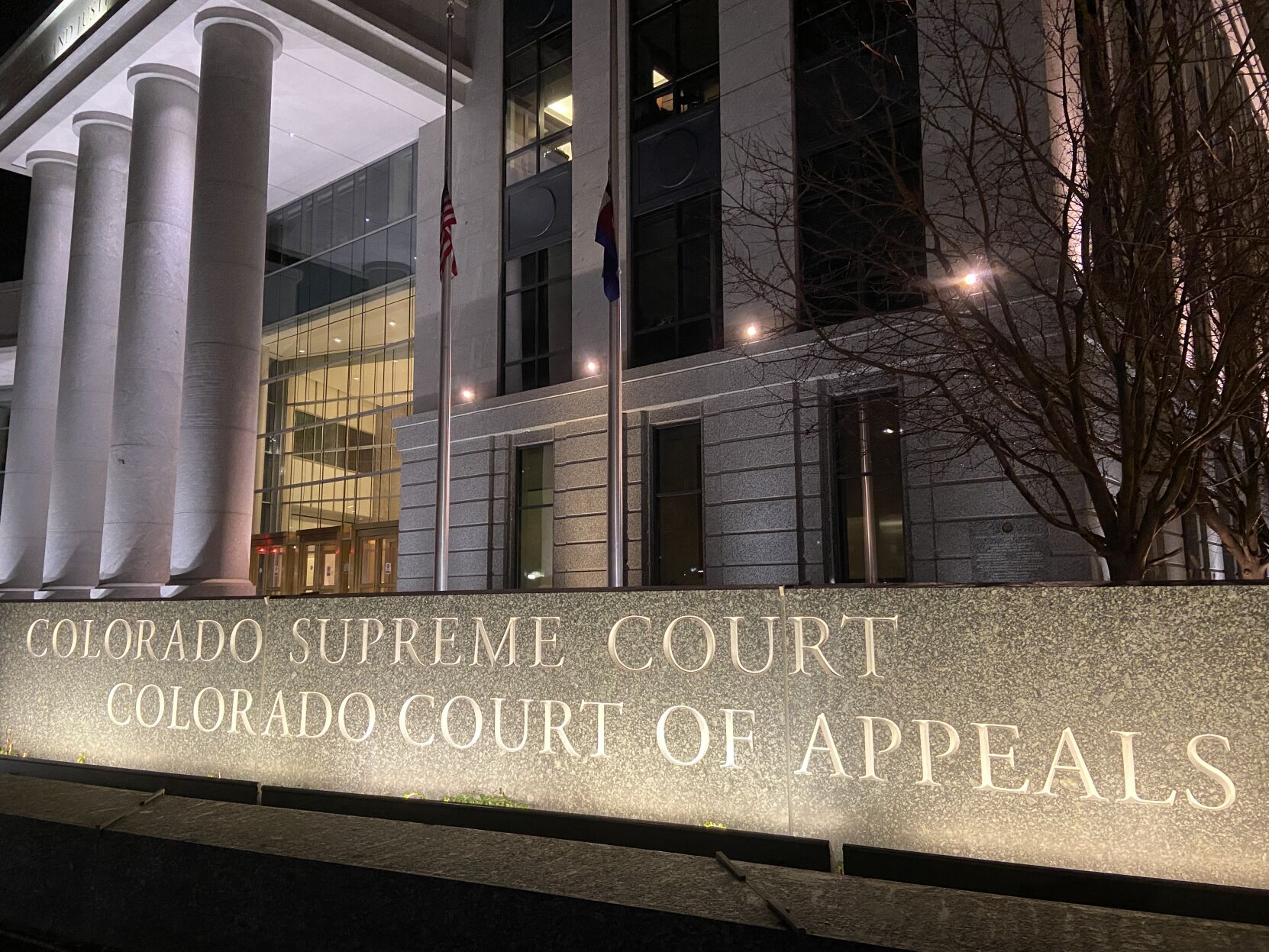Appeals court reverses man’s conviction based on unlawful backpack search

The state’s second-highest court overturned a man’s conviction due to an unlawful police search, while also scolding a Douglas County court employee for her comments to jurors about the defendant.
A jury convicted Christopher Emanuel Thomas in 2019 for unlawfully possessing a firearm in light of his previous conviction for a felony offense. An officer discovered the gun in a backpack Thomas kept in his car. Police had arrested him on Interstate 25 for driving with a suspended license, and Lone Tree Officer Kenny Medina subsequently performed an inventory search in preparation for towing Thomas’ car.
Medina, who found the gun, testified at trial that his inventory was “part of policy and it’s also we’re allowed to do it under the law, as well.”
On Thursday, a three-judge panel for the Court of Appeals agreed with Thomas that the search was unlawful. Although the Fourth Amendment generally requires a warrant prior to a police search, there is an exception under the “community caretaking function” – the name given to officers’ actions that are not investigative in nature. Responding to disabled vehicles or accidents, for example, would fall under that role.
On appeal, Thomas argued that Medina’s inventory search needed to follow a departmental policy. Otherwise, his handling of Thomas’ property could conceivably be a “ruse” to search for incriminating evidence without a warrant.
In response, the Colorado Attorney General’s Office argued that it is unnecessary to have a written policy. Testimony from an officer about proper protocol “is sufficient to establish its existence, and trial courts have discretion to evaluate the credibility of such testimony,” wrote Assistant Attorney General Fellow Shelby A. Krantz.
The appeals panel was unconvinced that such a policy existed to guide Medina’s search, and pointed to the officer’s inability to cite any Lone Tree Police Department requirement that he open Thomas’ backpack.
“We thus conclude the record is devoid of any basis on which to find that the search of Thomas’s backpack was conducted in accordance with the police department’s policies and procedures,” wrote Judge Sandra I. Rothenberg in the March 31 opinion.
The panel determined that evidence of the firearm should have been suppressed. It ordered a new trial for Thomas, if there remains sufficient evidence beside the gun to charge him again.
A spokesperson for the City of Lone Tree provided a copy of the police department’s current vehicle inventory policy, whose purpose is “to protect the department against fraudulent claims of lost, stolen or damaged property.” It was unclear when Lone Tree adopted the guidance.
The appellate judges declined to side with Thomas on the other claim in his appeal, but nonetheless expressed their displeasure with the actions of a court employee. During jury selection, one man asked to speak to District Court Judge Jeffrey K. Holmes about an incident in the courthouse that morning.
The jury commissioner, according to the juror, announced over the loudspeaker around 9:30 that Thomas had just arrived, even though he was supposed to be there at 8:00. The juror told Holmes he doubted he could be fair to Thomas after knowing the defendant had been late to his own trial.
Holmes summoned the unnamed jury commissioner, who testified that, in response to questions from jurors about why it was taking so long to get started, she told them the defendant had just arrived. She explained that jurors were frustrated that they had to be at the courthouse by 8.
Thomas’ attorney moved for a mistrial, saying the jurors looked visibly frustrated at the delay. Holmes observed that “the situation is one that is in some measure of Mr. Thomas’s own making. Mr. Thomas was late.” But the judge agreed to question jurors further after lunch.
Upon returning from the break, Holmes asked jurors if they had heard anything that would affect their view of the defendant. No one responded. Holmes then directly raised the jury commissioner’s announcement of Thomas’ tardiness.
Multiple jurors recalled hearing the announcement. One juror said the jury commissioner did not specifically say Thomas was late, while other jurors remembered the jury commissioner saying the judge was unhappy with Thomas during her announcement.
One man said he did not view the announcement as affecting Thomas’ innocence, but “it’s more of a character thing for me.”
Holmes denied the motion for a mistrial, and all of the jurors who were concerned about the announcement did not end up serving. Thomas contended the judge deprived him of his right to a fair trial with an impartial jury.
“The fact that the prejudicial taint came from the jury commissioner – an employee of the court – who not only asserted that Thomas was late but also that the judge was unhappy with him, carried an undue amount of prejudice in the prospective jurors’ minds,” wrote Deputy State Public Defender Kira L. Suyeishi.
Rothenberg, a retired judge who sat on the appellate panel at the chief justice’s assignment, indicated that the unflattering information the jury commissioner provided about Thomas outside of the courtroom did not likely influence the guilty verdict.
Nevertheless, she added, the jury commissioner “is a trusted officer of the trial court and her statements to the entire (jury pool) improperly introduced extraneous information by implying that Thomas was late and that the judge was unhappy with him.”
The case is People v. Thomas.

michael.karlik@coloradopolitics.com












